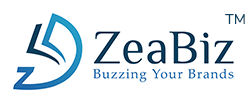How Is Intellectual Property Important to Ecommerce?
Intellectual property law protects against disclosure of trade secrets and, as a result, against unfair competition. That makes intellectual property an asset that is perhaps worth more than any tangible asset. This can be seen most clearly in relation to technology and the digital economy.
Without intellectual property practices and laws, hard work is stolen and spread around the globe without paying the creator for their labor. Who, then, wants to create new works? Technical security is necessary to deter the less proficient thief and intellectual property laws are required to deal with the more serious criminal.
The two primary areas that you should be concerned about are
Safeguarding your own intellectual property
Violating someone else’s intellectual property
Safeguarding Your Own Intellectual Property
A common mistake is disclosing intellectual property prior to filing for protection of that property. Likewise, in many countries making trade secrets public automatically dissolves any protection.
Consult with your legal adviser prior to disclosing anything pertaining to your intellectual property
Violating Someone Else’s Intellectual Property
Your ecommerce website contains product descriptions and images. Do you have the legal right to publish those descriptions and images? What about all those logos, videos, photos, clip art, icons, sound effects, and background music? They sure make your site a more engaging. But, once again, do you have the right to be using them?
I know of many small ecommerce entrepreneurs who disregard intellectual property issues using the dictum, “whatever is available on the Internet is free for use!” The fact that they seem to get away with such IP violations makes the rest of us wonder whether we are spending our money right.
The fact is that when you are really small, you might be able to fly under the radar. But as you grow, your flagrant intellectual property violations will stand out. If you are not a fly-by-night operation, you need to take intellectual property issues seriously.
Any content you place on your website must something that:
- you own
- you have the express permission to use
- is in the public domain
- is covered under fair use.
Intellectual Property Is Not Limited to Content
Do you sell branded goods? Are you sure that the goods are authentic? Is it possible that you are selling fakes? You might feel that this should be the headache of the your supplier. But as a retailer, you too can fall into trouble if you do not take adequate measures to ensure that you are selling goods that the supplier was authorized to supply in the first place.
Requirement are:
- Save brand value
- Increase sales
Copyright
Copyright is a legal term used to describe the rights that creators have over their literary and artistic works. Works covered by copyright range from books, music, paintings, sculpture and films, to computer programs, databases, advertisements, maps and technical drawings.
Trademark right
A trademark is a sign capable of distinguishing the goods or services of one enterprise from those of other enterprises. Trademarks date back to ancient times when craftsmen used to put their signature or “mark” on their products.
Patent right
A patent is an exclusive right granted for an invention. Generally speaking, a patent provides the patent owner with the right to decide how – or whether – the invention can be used by others. In exchange for this right, the patent owner makes technical information about the invention publicly available in the published patent document.
Checklist for save IP issues:
Follow infringement process.
Legal process.
- Understanding How Intellectual Property (IP) Relates to E-Commerce
- Taking Stock of Your IP Assets Relevant to E-Commerce
- IP Issues When you Design and Build Your Web Site
- IP Issues Related to Internet Domain Names
- How Your E-Commerce Business is Affected by Patents
- IP Issues in the Distribution of Content on the Internet
- Using Care in Disclosures on the Internet
- Important Contracts and IP
- Partnerships with Government and Educational Institutions
- IP Concerns about International Transactions in E-Commerce



